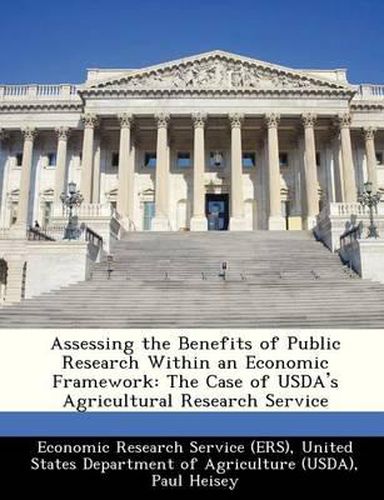Readings Newsletter
Become a Readings Member to make your shopping experience even easier.
Sign in or sign up for free!
You’re not far away from qualifying for FREE standard shipping within Australia
You’ve qualified for FREE standard shipping within Australia
The cart is loading…






Evaluation of publicly funded research can help provide accountability and prioritize programs. In addition, Federal intramural research planning generally involves an institutional assessment of the appropriate Federal role, if any, and whether the research should be left to others, such as universities or the private sector. Many methods of evaluation are available, peer review-used primarily for establishing scientific merit-being the most common. Economic analysis focuses on quantifying ultimate research outcomes, whether measured in goods with market prices or in nonmarket goods such as environmental quality or human health. However, standard economic techniques may not be amenable for evaluating some important public research priorities or for institutional assessments. This report reviews quantitative methods and applies qualitative economic reasoning and stakeholder interviewing methods to the evaluation of economic benefits of Federal intramural research using three case studies of research conducted by USDA’s Agricultural Research Service (ARS). Differences among the case studies highlight the need to select suitable assessment techniques from available methodologies, the limited scope for comparing assessment results across programs, and the inherent difficulty in quantifying benefits in some research areas. When measurement and attribution issues make it difficult to quantify these benefits, the report discusses how qualitative insights based on economic concepts can help research prioritization.
$9.00 standard shipping within Australia
FREE standard shipping within Australia for orders over $100.00
Express & International shipping calculated at checkout
Evaluation of publicly funded research can help provide accountability and prioritize programs. In addition, Federal intramural research planning generally involves an institutional assessment of the appropriate Federal role, if any, and whether the research should be left to others, such as universities or the private sector. Many methods of evaluation are available, peer review-used primarily for establishing scientific merit-being the most common. Economic analysis focuses on quantifying ultimate research outcomes, whether measured in goods with market prices or in nonmarket goods such as environmental quality or human health. However, standard economic techniques may not be amenable for evaluating some important public research priorities or for institutional assessments. This report reviews quantitative methods and applies qualitative economic reasoning and stakeholder interviewing methods to the evaluation of economic benefits of Federal intramural research using three case studies of research conducted by USDA’s Agricultural Research Service (ARS). Differences among the case studies highlight the need to select suitable assessment techniques from available methodologies, the limited scope for comparing assessment results across programs, and the inherent difficulty in quantifying benefits in some research areas. When measurement and attribution issues make it difficult to quantify these benefits, the report discusses how qualitative insights based on economic concepts can help research prioritization.